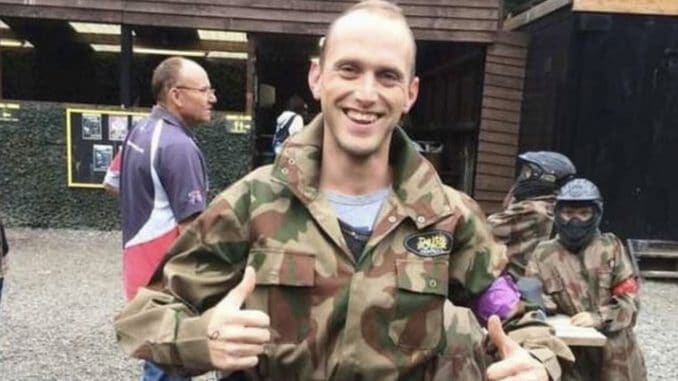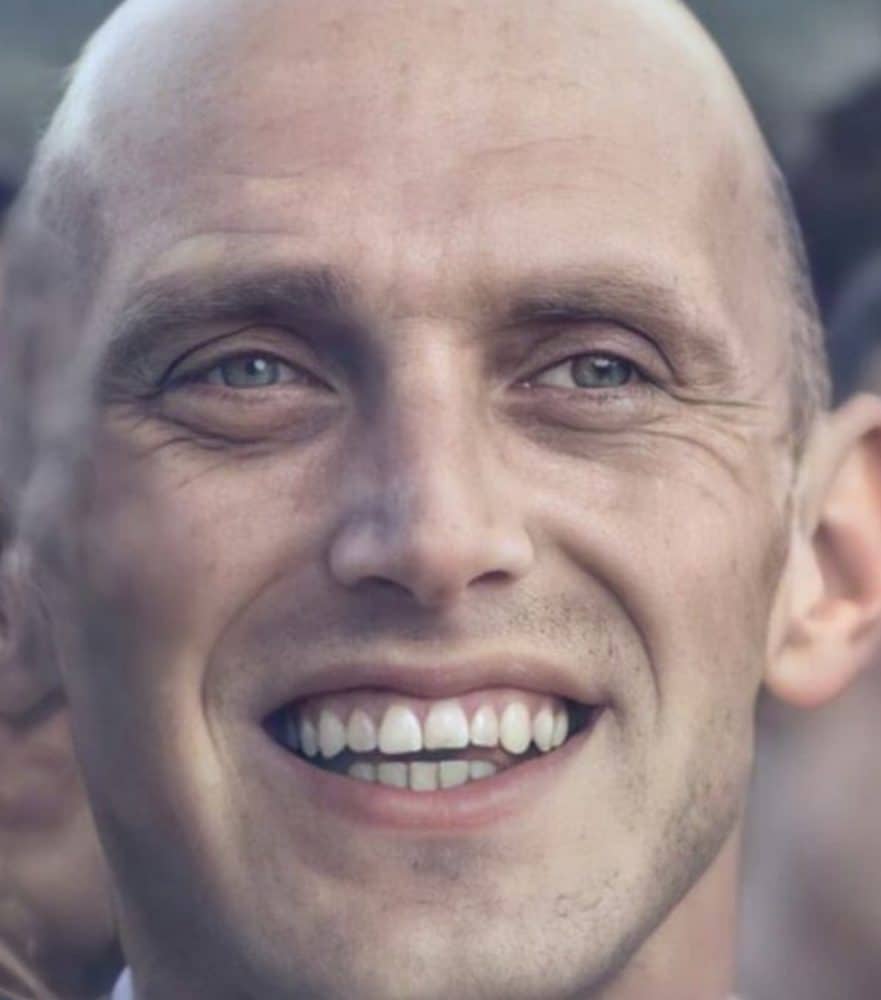
His family described him as “loved”
A ‘troubled’ Essex man tragically took his own life in a popular Essex park after battling with mental health struggles for years.
John Moore, 39, was found hanging in a playground at Lower Castle Park in Colchester, Essex, at around 6.45am on June 10, 2021.
Police erected a cordon near the area John was found, which was lifted a short while later at around 10am.
The inquest into John’s death took place at Essex Coroners Court in Chelmsford, Essex on Friday (February 4), overseen by Area Coroner for Essex, Sean Horstead.
The court heard that John was known to the mental health service, Essex Partnership University Trust (EPUT), in the years before his death.
John was diagnosed with adult ADHD, personality disorder and bipolar disorder. The court heard that his mental health was ‘erratic’ and he had several life events that “sent him off the rails”, leading to two overdose attempts.
The court heard that John often took illicit drugs when he was happy in order to “keep the high going” and that he also had brief spells in prison for ‘drug-related incidents’.
John, who was a painter and decorator, had attempted to take his own life in 2017 through a drugs overdose.
He attempted to get his life back on track a year later, but his mental health deteriorated and he had “hit a period that was much lower than he had been before”.
John was admitted to a mental health institution in Goodmayes, Essex, where he tragically attempted to hang himself in the garden of the sheltered accommodation.
As a result, he was taken to A&E at Queens Hospital in Romford, where he was discharged into the community and monitored.

After this event, John went to stay with a friend in Colchester, Essex, but John was then “required to leave”, where he became homeless, the court heard.
During this time, John burgled his family members, something which John’s family said was because he was “expressing himself”.
The court heard that months later, John had taken another overdose.
In November 2019, he had taken an overdose of his prescribed medication while in police custody.
Three months later, he was taken to The Lakes mental health service in Colchester and was admitted as a voluntary inpatient.
He was later admitted to the Peter Bruff ward at the Kingswood Centre in Colchester on March 6, 2020.
Giving evidence at the inquest, Vicky Jones, John’s mental health care coordinator, told the court that upon being admitted to Peter Bruff, he was identified as having “self-neglect and vulnerability, ADHD, homeless, history of alcohol and illicit drug use, suicidal thoughts, ideation and plans”.
Just days later, on March 18, 2020, he was discharged from the ward. However, the court heard that John still had no fixed address when he was discharged.
The court was told that John’s family had stopped receiving communications from him and became ‘disengaged’ in August 2020 – after he was discharged from the hospital.
He had also ceased communications with the mental health services.
Coroner Horstead asked whether it was common for a homeless person who comes into the mental health services, to be discharged back onto the streets.
The court heard that because of John’s previous convictions and criminal allegations, as well as a restraining order, his options were ‘limited’ as he was not able to go to a homeless shelter.
Coroner Horstead stressed that due to the ongoing Covid-19 pandemic at the time, there was a change in national policy in relation to the homeless during the pandemic.
Months after his discharge, John was able to live inside a hotel.
However, the court heard that John took his own life over a year after he was discharged from mental health services.
A post mortem examination was conducted by pathologist Shaobin Wu at Colchester General Hospital, who gave the cause of death as 1A fatal pressure on the neck.
Toxicology was also taken, which revealed that no illicit drugs, alcohol or medication was detected in John’s blood.
‘Inadequate record keeping’
During the inquest, questions were raised as to the quality of records kept by mental health practitioners.
The court heard that documents on John’s admission to the mental health services had “discrepancies” as well as the document not being completed properly.
At the time John was admitted to the hospital, Ms. Jones was shadowing a senior member of staff, Clive Fowell, who was supervising her.
Coroner Horstead expressed concerns relating to the discrepancies within the dates where Ms Jones was being supervised, as well as the documents not being completed.
He added that the lack of documentation of John’s risk assessment could mean that it “did not happen” and that some of the documents appeared to be “a cut and paste job”.
He stated that it was the Nursing code of conduct to keep adequate records.
Coroner Horstead said it was an “inappropriate way for record-keeping of supervision because there needs to be, in my view, there needs to be a new document, rather than using an old document that you amend.
“My concern is it [the record] lends itself to missing things.”
Ms Jones stated that she has since received training on record keeping and EPUT added that they have implemented new policies in relation to record-keeping, which is being rolled out within the ‘next couple of months.’
‘Inadequate training’
Coroner Horstead also expressed his concerns over the lack of training care coordinators across the UK are receiving.
The court heard that Ms Jones did not have any formal training as a care coordinator, but was instead, shadowing a senior member of staff.
Mr Horstead stated that the lack of training of care coordinators is “inadequate and inappropriate” and urged for there to be a “consideration of a formal training course of some kind” in order to prevent another death.
As a result, Coroner Horstead stated that he will be making a Prevention of Future Death Report, following the finding.
He said: “There is a risk of future deaths if there is a continuation of the policy of having care coordinators who are insufficiently trained in all aspects of their role”.
Mr Horstead added that there were ‘lessons to be learnt’ in the event where somebody becomes ‘disengaged’ with the mental health services, something which EPUT stated has been amended.
Coroner Horstead added that John intended on taking his own life, and concluded that he tragically passed away as a result of suicide.
‘John was let down’
Susan Moore, John’s mum said: “John was very loved by family and friends and we can’t bear to contemplate life without him.
Credit Essex Live
